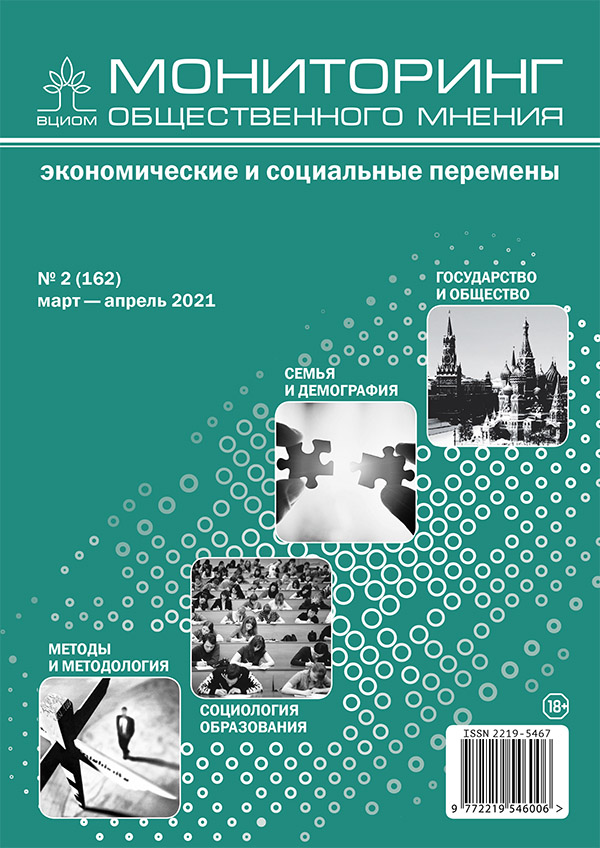Stochastic Actor-Oriented Models in the Analysis of Co-Evolution of Networks and Behavior
DOI:
https://doi.org/10.14515/monitoring.2021.2.1806Keywords:
social network analysis, peer effect, sociology of education, academic achievements, stochastic actor-oriented modelsAbstract
Human behavior depends on many factors including the social environment. Over the past decades, scholars have actively developed models that evaluate the impact of the environment on the individual. This article describes stochastic actor-oriented modeling (SAOM) which allows to test hypotheses about the structural evolution of social networks, as well as to analyze the co-evolution of networks and behavior in detail. The authors present theoretical and methodological foundations of SAOM; specify requirements for research design and data collection; consider the specification of the model and an example of co-evolution of the network and academic achievement of students; point out limitations of the method, and suggest promising avenues for further research. The article concludes that using SAOM is preferable for small social networks with low rotation, in particular, for organizational units and study groups. The authors argue that the existing studies mainly consider the educational context and social networks of young people that does not allow to draw conclusions about the evolution of social ties in communities of a different type and other age groups. In addition, most of the research is based on data collected in Western democracies which indicates the need to investigate a variety of samples.
Acknowledgments. The research was carried out within the HSE Program for Fundamental Research.
Downloads
Published
How to Cite
Issue
Section
License
Copyright (c) 2020 Monitoring of Public Opinion: Economic and Social Changes Journal (Public Opinion Monitoring) ISSN 2219-5467

This work is licensed under a Creative Commons Attribution-NonCommercial-ShareAlike 4.0 International License.






